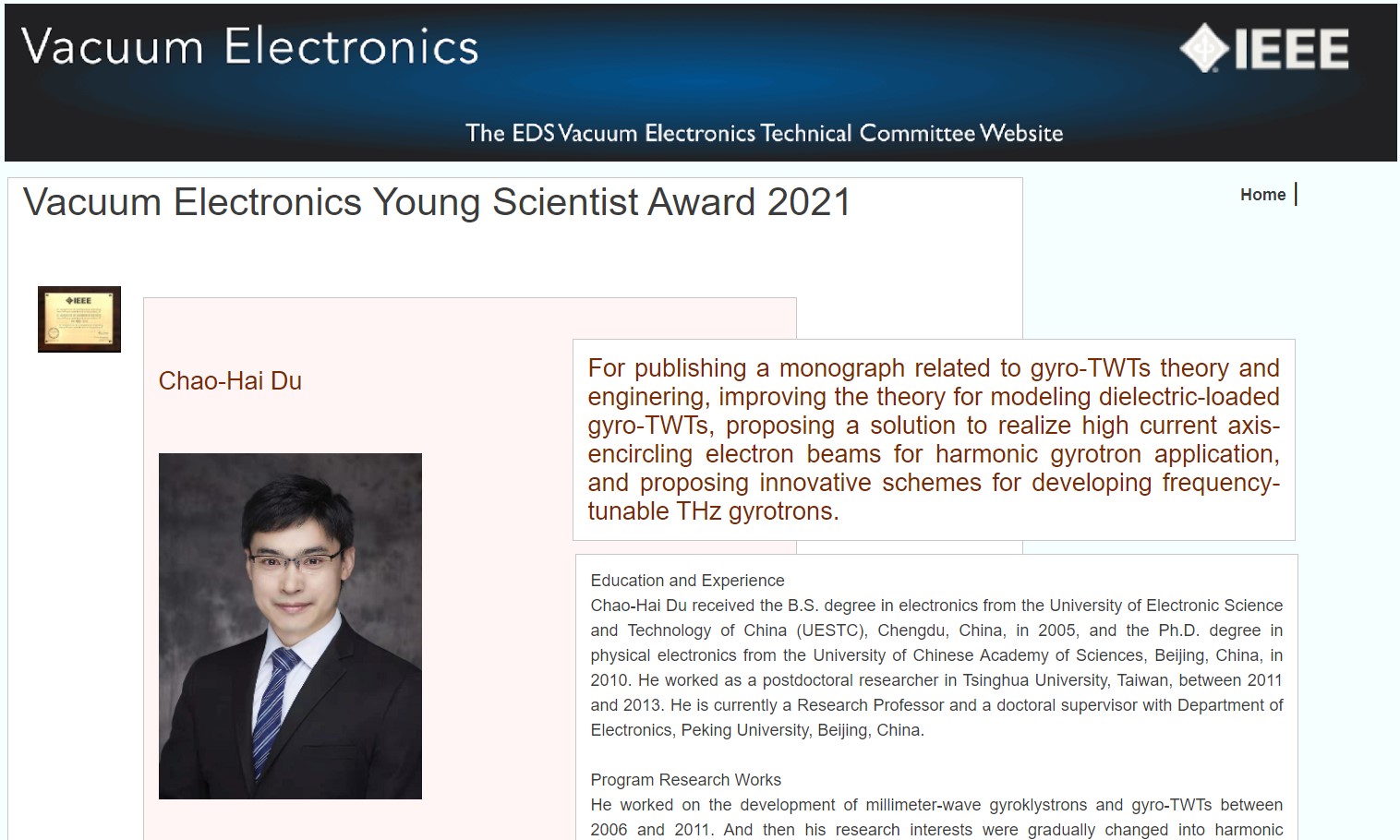The 22nd International Vacuum Electronics Conference (IVEC 2021) was held in Europe from April 27 to 30, 2021. The conference was organized by the Electron Devices Society of Institute of Electrical and Electronics Engineers (IEEE) and hosted by the European Space Agency (ESA).
At the conference, Prof. Chaohai Du from the School of Electronics, the State Key Laboratory of Advanced Optical Communication Systems and Networks at Peking University was awarded The Vacuum Electronics Young Scientist Award 2021 and gave a plenary report entitled "Gyrotron Research at Peking University".

Figure 1 The web page for The Vacuum Electronics Young Scientists on the website of IEEE Vacuum Electronics Technical Committee
Vacuum electronics mainly studies the emission and transport of electrons in a vacuum environment, the excitation of electromagnetic waves, and their interaction with plasmas. It has important applications in radar, communications, electronic countermeasures, healthcare, high-energy accelerators, and controlled nuclear fusion. Prof. Chaohai Du has been actively involved in the research of millimeter-wave to terahertz-wave vacuum electronics for more than ten years. He has been responsible for various projects, such as the National Science Fund for Excellent Young Scholars, the NSAF Joint Fund Key Project, the China-UK International Talent Cooperation Project (Newton Advanced Fellowship), and the National 863 Program. He has developed representative high-gain gyrotron amplifiers, frequency-tunable gyrotron oscillators, and terahertz harmonic gyrotron amplifiers. Prof. Du has published more than 70 high-level SCI journal papers and authored the first English monograph on gyrotron amplifiers. He has also authorized 22 Chinese invention patents and led the development of professional gyrotron simulation software that has gained Chinese computer software copyright registrations. Currently, he is focused on the development of a 1 THz continuous-wave radiation source, ultra-wideband frequency-tunable terahertz gyrotron oscillator, and on-chip integrated terahertz vacuum electronic source. Prof. Du aims to promote their applications in biomedical diagnosis and treatment, wireless communication, and terahertz spectroscopy.
The Vacuum Electronics Young Scientist Award was established in 2019 by IEEE and each year world widely selects only one young scientist under the age of 40 who has made outstanding contributions to the field of vacuum electronics. Through a rigorous international evaluation process and peer review, Prof. Chaohai Du became the third winner of this award, as well as the first winner from China.
The website link of the award information: https://vacuumelectronics.org/ivec_award/chao-hai_du.html.




